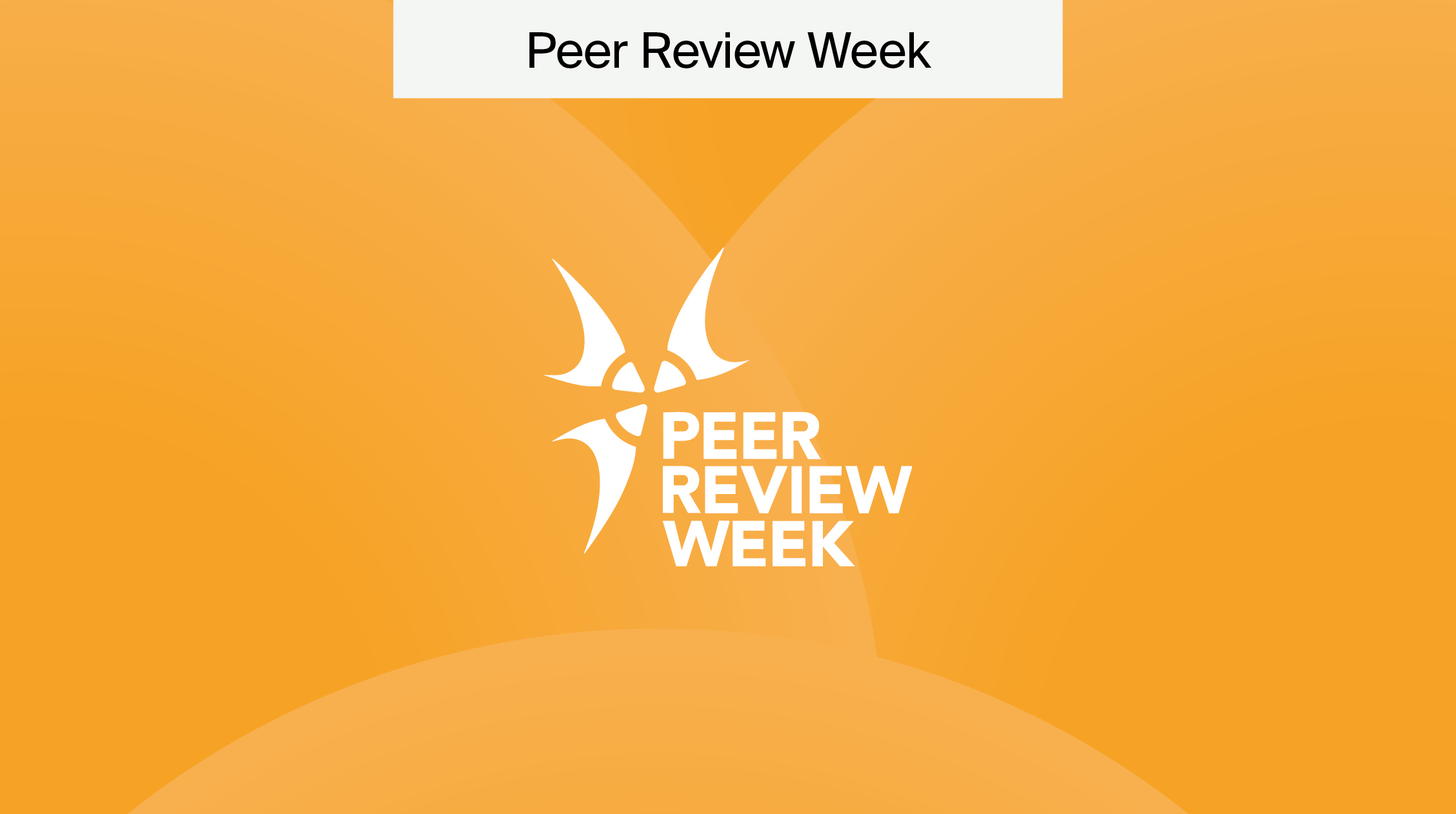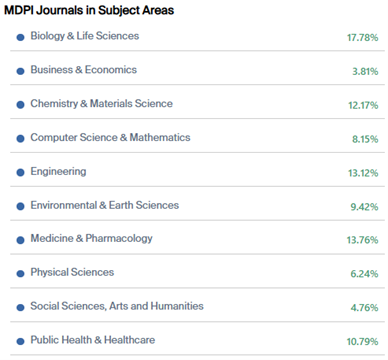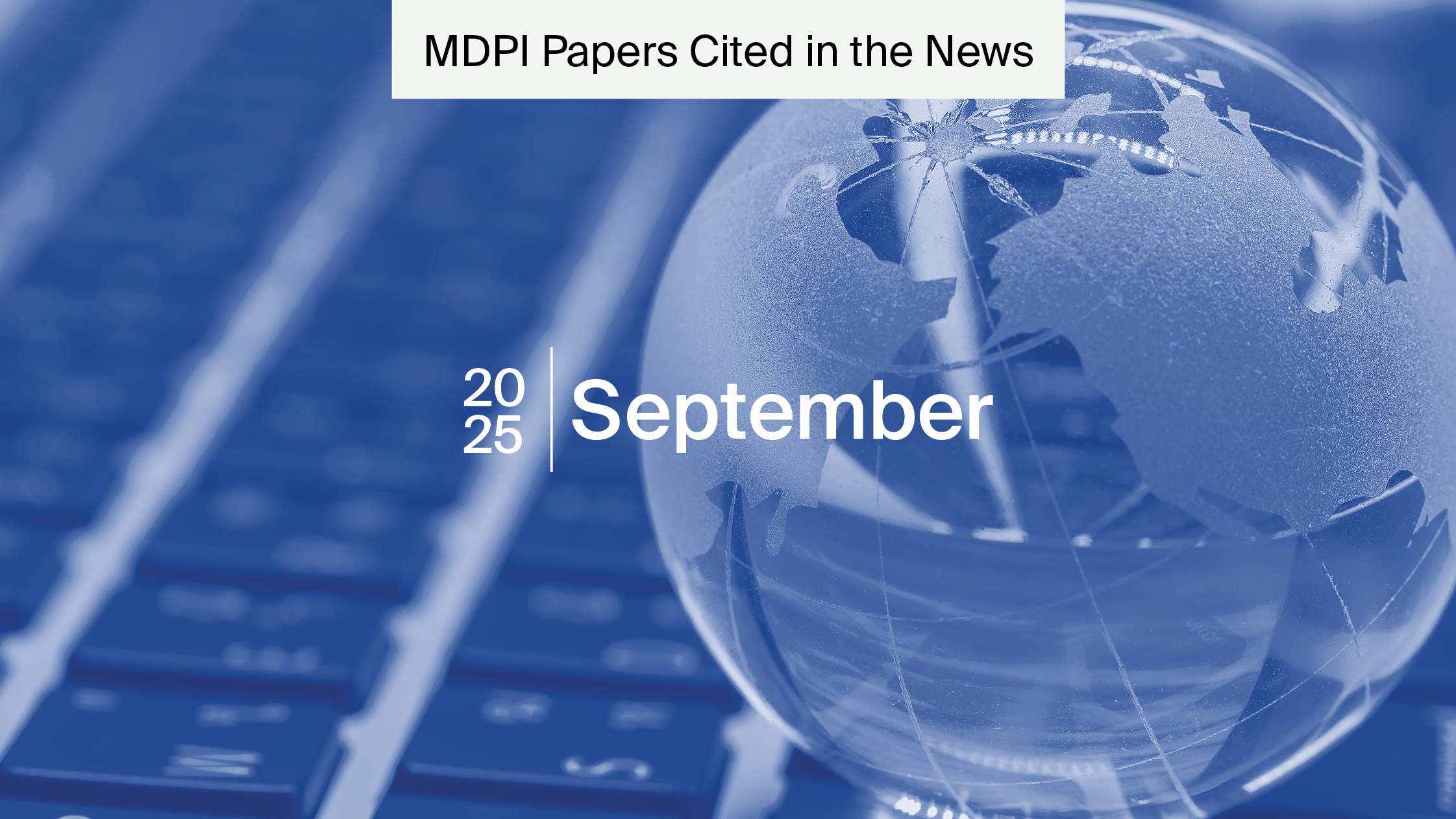
Maintaining High-Quality Peer Review Across Over 475 Open Access Journals
MDPI maintains a high-quality and robust editorial process across its entire portfolio of journals.
Preserving the peer review process is highly important given the many challenges that scientific integrity faces. Peer Review Week focuses on celebrating the hard work scholars do to maintain the process and reflect on how the academic community can advance it.
The theme for Peer Review Week 2025 is “Rethinking Peer Review in the AI Era”, inviting a dialogue on how AI is reshaping the scholarly publishing landscape.
MDPI has invested in AI tools to increase efficiency and improve the experience of authors and reviewers, whilst also investing in training and support for its diverse human skills. Ultimately, AI is utilized across MDPI to support its staff and ensure the highest quality possible.
This article will showcase MDPI’s processes and how they are designed to maintain the editorial process at scale.
Editorial processes and structure
MDPI believes that peer review should be efficient, rigorous, and fair for everyone involved.
Across MDPI’s journal portfolio, there are over 475 journals. To maintain the process at scale, the process is standardised to ensure consistency and efficiency across its diverse subject areas.

Percentage of subject areas of MDPI journals.
For most MDPI journals, peer review is a single-blind assessment with at least two independent reviewers, followed by a final acceptance/rejection decision by the Editor-in-Chief or another academic editor that is a subject matter expert.
The Editor-in-Chief is responsible for the academic quality of the publication process.
In 2024 alone, more than 215,000 expert reviewers carefully evaluated 598,500 submitted papers across MDPI’s portfolio of journals. Supporting this effort were over 2,000 Editors-in-Chief, Section Editors-in-Chief, and Associate Editors, who play a crucial role in upholding the integrity, development, and long-term quality of our journals.
And, as of 2025, MDPI has over 8000 staff dedicated to ensuring the best possible experience for authors and reviewers.
It is thanks to all these contributors’ dedication and diverse skills that MDPI journals maintain quality and integrity, whilst also ensuring efficiency and consistency.

From: https://www.mdpi.com/editorial_process
Guidelines and expectations of reviewers
Peer reviewers are entrusted with the critical task of evaluating manuscripts, ensuring that the research meets the highest standards of rigor, relevance, and ethical conduct. This role comes with significant responsibility that influences the trustworthiness of not only the journal but the scientific literature as a whole.
Reviewers who accept to review a manuscript for an MDPI journal are expected to:
- Have the necessary expertise to judge the scientific quality of the manuscript.
- Provide quality review reports and remain responsive throughout the peer review process.
- Maintain standards of professionalism and ethics.
Click here to read MDPI’s guidelines for reviewers, which include information on the criteria to qualify as a reviewer, benefits, and general practical guidelines.
MDPI adheres to the Committee on Publication Ethics (COPE) guidelines, which include ethical expectations for reviewers. These include:
- Maintain confidentiality.
- Declare any potential competing interests that may bias you for or against the paper or authors.
- Hold joint responsibility with the journal and academic editor to evaluate the manuscript’s adherence to research and publication ethics.
- Avoid delaying the peer review process in consideration of the authors.
Click here to learn more about the Ethical Responsibilities of Peer Reviewers.
Setting clear guidelines ensures that reviewers have all they need to produce high-quality reports in a timely manner. Alongside this, MDPI editorial staff maintain regular communication with both authors and reviewers, keeping them up to date on the manuscript.
Use of AI in review reports
MDPI sets clear guidelines, including for AI usage, for reviewers and authors, and has a standardized process that is robust and efficient.
GenAI tools and other large language models (LLMs) should not be used by reviewers in the preparation of review reports.
Reviewers are solely responsible for the content of their reports, and using these tools may violate confidentiality, proprietary, and data privacy rights. Limited use to improve the written quality of a peer review report, such as correcting grammar, structure, spelling, punctuation, and formatting, may be acceptable but should be disclosed upon the submission of the peer review report.
Under no circumstances should reviewers upload manuscripts, either in whole or in part, images, figures, tables or any kind of communication related to unpublished manuscripts to any GenAI tools, as to do so violates MDPI’s confidentiality policy relating to peer review.
If it is determined that AI tools have been inappropriately used in the preparation of a review report, the report will be discarded.
Human skill is essential to the peer review process. This is evident in how research papers have been found to contain prompts that influence AI’s outputs when reviewing manuscripts. Accordingly, MDPI is committed to ensuring human skill remains central to the editorial process.
Ethical checks
Peer reviewers serve as the gatekeepers of research integrity and are entrusted with the critical task of evaluating manuscripts, ensuring that the research meets the highest standards of rigor.
This responsibility is shared with journal’s Editorial Board and the publisher, all working together to ensure the continued trust in the journal and the scientific literature.
By adopting a collaborative model between publishers, academic editors, and reviewers, knowledge and expertise can be shared. Publishers can share their knowledge of new tools, international mandates and policies, and lessons learned from publication ethics and research integrity breaches. Academic editors and reviewers share their scientific expertise, knowledge of research standards, and trends within the scholarly community.
As stated by COPE, these collaborative models “recognise the valuable contributions of both editors and publishers in maintaining the quality and integrity of scholarly publications”.
Collaborating throughout the peer review process
Throughout the editorial process, multiple layers of ethical review are in place. The editorial office, academic editor, and reviewers each conduct independent checks and cross-checks to ensure accuracy and integrity. The editorial office will perform ethical screenings that include plagiarism, ethical approvals, and compliance with publishing standards and reporting guidelines, among other checks that could be indicative of unethical behavior. Throughout the peer review process, they monitor conflicts of interest and irregular changes in references, authorship, and overlap with other publications.
Independently the academic editor assesses the suitability of the submission, overall scientific soundness, relevance of the references, the correctness of the applied methodology, and ethical conduct of the research. Additionally, the academic editor will also check the findings reported by the editorial office and carefully check the reviewer reports and any concerns raised.
A minimum of two independent reviewers will perform a further detailed check of the entire manuscript. Their focus is primarily on the content, methodology, and results, but it also includes confirmation that the ethical standards are met.
At MDPI the reviewers have the possibility to leave confidential notes for the academic editor. Any concerns can be reported directly to the academic editor and will be investigated with the support of the editorial office.
A high-quality peer review process includes several cross checks by subject matter experts of both scientific quality and ethical standards.
MDPI values and recognises reviewer contributions
MDPI recognises and values all reviewers and their contributions.
All reviewers for MDPI journals receive 100 CHF vouchers for each high-quality reviewer report. This can be applied to a reduction in the article processing charge (APC) of a future submission to any MDPI journals.
Further, through its awards, MDPI remains committed to uplifting researchers and rewarding the integral role they play in publishing high-quality Open Access research.
Because reviewers have an essential role in maintaining a transparent and high-quality peer review process, MDPI offers the Outstanding Reviewer award.
MDPI awards individuals who have generously contributed their time to reviewing papers. Outstanding reviewers are those who have shown the highest standards of professionalism, timeliness, and thoroughness in their reports.
Selection criteria for this award include:
- Being a reviewer for the corresponding journal within the annual period.
- Number of review reports.
- Quality and timeliness of review reports.
Winners are selected from the preceding year by the journal’s award committee. The number of awardees differs across journals.
The lack of incentives for peer reviewers has been a long-standing issue in scientific research. By recognising, celebrating, and rewarding outstanding reviewers, MDPI aims to empower and encourage the reviewers and their excellent work.
Click here for more journal-specific details about the Outstanding Reviewers Award.
What reviewers think of MDPI
MDPI is always looking for ways to refine its processes. To do so, MDPI engages with feedback from authors and reviewers.
Here is what reviewers have to say about MDPI’s processes:
The process is efficient, and the communication with the editorial team is clear and professional. I appreciate the timely feedback and the emphasis on maintaining high-quality research standards. – Miloud Abdul Kader Souiyah, University of Hafr Al Batin, Kingdom of Saudi Arabia, Saudi Arabia, Reviewer for Energies.
The review process was well-structured, with clear instructions and timely communication from the editorial team. I appreciated the transparency and professionalism throughout. – Salma Aly, University of Alabama at Birmingham, USA, Reviewer for Healthcare.
The platform is user-friendly, the process is efficient, and communication with the editorial team is clear and timely. I particularly appreciate MDPI’s commitment to Open Access dissemination and the opportunity to contribute to the scientific community by helping uphold quality standards. – Penelope Ioannidou, National Technical University of Athens, Greece, Reviewer for Applied Sciences.
MDPI: quality, consistency, efficiency for over 25 years
MDPI maintains a high-quality peer review process at scale across its entire portfolio of over 475 journals.
Central to this is the diverse human skill across MDPI and all the reviewers that contribute. They are supported by clear guidelines and standardisation, which ensures robust ethical and quality checks. Further, reviewers are rewarded for their hard work by being eligible for APC vouchers and the Outstanding Reviewer Award.
All this is to ensure that MDPI publishes research of the highest quality, consistently, as it has for over 25 years.










